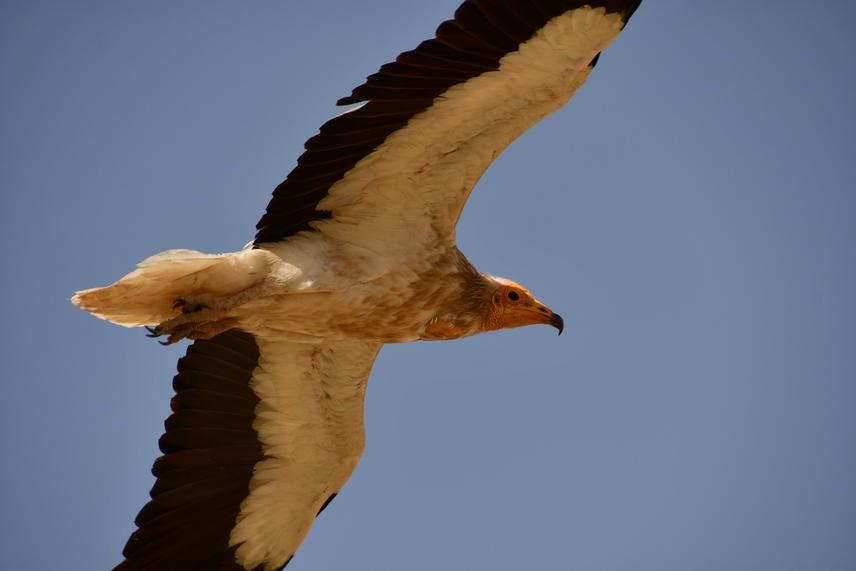Alyona Kaptyonkina
In 2022, the Biodiversity Research and Conservation Center (BRCC) initiated several projects, such as, “Saker Falcon and Egyptian Vulture Conservation in the Karatau Mountains” (see ref 1) and “Endangered Raptor Conservation on the Indo-Palearctic Flyway of Kazakhstan" (see ref 2). One of the key species was the Egyptian Vulture (Neophron percnopterus). As a result, a modern estimate of the vulture population in the Karatau Mountains was given, as well as in Kazakhstan (see ref 3). A rapid decline in the number of Griffon Vulture (Gyps fulvus) has also been revealed (see ref 4). Insufficient knowledge, lack of systematic monitoring, and the small number of experts are the problems faced by Kazakhstan in the field of conservation of birds of prey. Previous projects have shown the need to continue studying vultures, especially to identify the causes leading to a decrease in their numbers.

Egyptian vulture. ©Alyona Kaptyonkina.
Working on these projects, we discovered that veterinary drugs that adversely effect on vultures are still used in livestock practice in Kazakhstan. This motivated us to start a new project that will gather sufficient evidence that veterinary drugs (diclofenac, ketoprofen, and flunixin) are one of the possible reasons for the sharp decline in vultures in Kazakhstan. We plan to study the level of their use in the immediate vicinity of vulture nesting sites, as well as inform the local population about their negative impact on birds. The collected data will be the basis for contacting the Ministry of Ecology of Kazakhstan in order to ban these drugs.
Our goals will be achieved through several actions, including fieldwork in the Karatau and Chu-Ili mountains; monitoring the movements of birds using GPS-trackers; creating a database using field data; data processing, and scientific report generation.
References:
1. https://www.brcc.kz/en/projects-and-plans/saker-falconand-egyptian-vulture-conservation-in-kazakhstan
2. https://www.brcc.kz/en/projects-and-plans/endangeredraptor-conservation-in-kazakhstan/
3. https://www.acta-zoologica-bulgarica.eu/2023/Suppl_17_09
4. https://www.brcc.kz/en/2023/12/11/gypsfulvus_researchpaper2023/
Header: Egyptian vulture. ©Alyona Kaptyonkina.